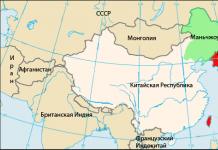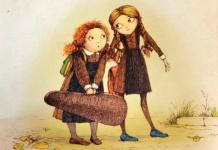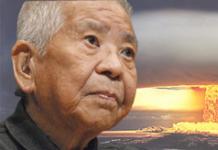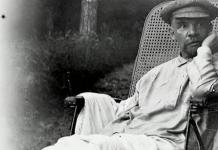A little about death
Now I am reading the book of Goswami Maharaja "The Arrow of Grace". In fact, these are several seminars compiled into a book. But in terms of content - this is something unimaginable !!!
For example, I recently read that we are afraid of death, because we have already died many times. And that we, in principle, cannot be afraid of what we ourselves have not experienced. This thought stirred my mind. The fact is that while I was studying in philosophy, I wrote all my term papers and my diploma in thanatology. For those who are not in the know, thanatology is the doctrine of death (from the Greek "thanatos" - death and "logos" - doctrine, or science). And, accordingly, very often I tried to shed light on the fear of death and dying.
Usually I didn't have a more or less clear explanation of this problem. I thought that the fear of death is a transformed fear of the unknown, the fear of parting with attachments, etc. But it never occurred to me that the fear of death was the result of our experiences!
With all this, in my diploma work, analyzing the works of Stanislav Grof, I repeatedly turned to his experience of death-rebirth. In fact, I believed in reincarnation thanks to Grof. Because he so competently and logically substantiated this phenomenon, known in antiquity, but rejected by modern scientists, that it would be foolish not to admit it.
And then it turns out that in fact it was under my nose! Undoubtedly, the above two reasons exist, but they can be overcome if desired. But in order to remove from your unconscious the memories of experienced deaths, you need to try very hard. And then, it is hardly possible to completely erase these experiences.
This, by the way, explains many fears and phobias inherent in people.
On the other hand, it can be observed that people who have achieved spiritual perfection do not have this fear at all. Mystic? Not at all. It's just that these people realized their difference from the body, so they are not afraid of the change of the shell. We are not afraid to throw out old clothes and buy new ones.
And if you look more closely, all the world's religions help people overcome this fear. I remember how one teacher from our department said that religion is an attempt to supplant the fear of death. In fact, when we realize our true nature, this fear disappears by itself.
Therefore, in order not to die in horror, let's take our spiritual development more seriously. And then all the problems will go away by themselves
________________
Comments and Questions
Alexander Kholopov
If this is an experience that we have experienced many times, then why does fear arise? The reason for the fear is incomprehensible ... It should be the other way around. If this experience is known to us, then why are we afraid?
Pavel Dorokhov
The fear of death does not come from the memory of past experiences, but from the forgetting of this experience. Accordingly, a person forgets his true nature and holds on to the body as if it were something real.
Alexander Kholopov
Here I am, too.
Alexey Ikonnikov
Whether we are ready for it or not, whether we are afraid of it or not, whether we want it or not, any concept easily dissipates at the moment when you are truly on the verge and become truly scared. All that remains is the belief that he has cultivated all his life, a belief on which it is difficult to concentrate.
Trying to find a reason why you shouldn't be afraid of death now, being at home, in comfort under a blanket, where everything is stable and familiar, is also a manifestation of fear. Internally it seems that knowing that you are in control of the situation, you know what's what, how it will be. You do not know. This is self-deception.
Imposition, or imitation, or comprehension of the experience of other people does not entail the experience of this experience, even if they are saints, their experience is not indicative, because we do not know how many lives they went through before leaving with a smile. You just need to wait and experience. It doesn't go anywhere behind whatever concepts we hide
Marina Borisenko
There is a wonderful film on this topic, "The Art of Dying". There is a phrase about how to learn the art of dying, you need to learn the art of living. And then death is not terrible.
Goswami Maharaj cue! Jai! Yes, we are afraid of death for several reasons:
1. Experience of past lives, memory of previous body changes. (Apparently we also remember about the God of Death Yamaraj)
2. Fear in its deepest manifestation that we cannot really control anything. And we see that life and death are beyond our control.
3. Fear of the unknown. However, not all. Some don't give a damn, they hope that their suffering will now end.
I heard in lectures that changing the body is a very unpleasant thing and that for several months, being in the womb, we are in a state where we remember all our lives, rebirths. We cry and pray to Boa that He will forgive us, we repent of what we have done. After all, being in a crooked position is also not very pleasant. But shortly before birth, the memory is taken away. The child does not remember anything and lives without remembering his repentance.
Terrible((((
And with Yamaraja I would rather sing kirtan together than be at his court. They say that there is nothing more terrible than his appearance and the appearance of his servants.
By the way, there were cases when a person suddenly came out of a coma or, in principle, his condition improved sharply after a serious illness for a couple of days, and then the person died. But some of them spent these 2-3 days in fear. They dreamed of monsters. It is said that the servants of Yamaraja came to them and warned them that he would die. The person was given a chance to "correct". But almost no one has been able to use it correctly. One had to learn from Maharaja Pariksit. Or read the story of Ajamila. There is always a chance to correct the situation.
Roman Alexandrovich
Yes, Marina, you are absolutely right.
Also, as sad as it may sound, we do not know how to die, because we do not live at all. Prabhupada said that materialistic people only create conditions for life, and they simply do not have time for life itself.
And so, wasting time for something incomprehensible, we "suddenly find ourselves" on the threshold of the last exhalation. Well, then - as in Blok: "If you die, you will start again from the beginning, and everything will be repeated as of old ..."
Alexey Ikonnikov
And then there is a very beautiful story about Savitri and Satyavan, whose love conquered death (Yamaraja).
Yaroslava wrote
And I liked the film "Baba Aziz". There the main character said well before his death, when he was asked: "Why are you happy, you are dying?" To which Baba Aziz replied: "Today I have a wedding night with eternity. Today I will merge with eternity and become it." And he prayed with anticipation. In general, the film is very beautiful, deeply beautiful, about the relationship with God.
Taken - Samopoznanie.ru
What is death? Why are all people more or less afraid of death? The fear of the unknown is a strong fear. As it will be? Will I suffer? What will happen after death? All these specific questions require specific answers.
First, let's try to figure out why almost every person has a fear of death. If we consider this issue more broadly, then we will certainly come to the conclusion that such fear is directly related to the instinct of self-preservation. Any living creature will be reluctant to part with its physical shell. Attachment to your body appears with the birth of this body. This attachment is inherent in Consciousness by nature itself.
The instinct of self-preservation, which means the fear of death, helps to preserve life. In other words, the fear of death is a natural feeling that is necessary for life. Life is an invaluable gift, and to preserve it, we are given the fear of death along with life. It's quite normal.
It's another matter when the fear of death is stronger than it deserves, if it becomes panicky. Then a person sees death in an exceptional degree as something unknown, dangerous and inevitable. Most of our fears, however, stem from ignorance. And the most powerful cure for ignorance is knowledge. Everything that we managed to understand and explain is no longer scary. In times immemorial, people were terrified of thunder and lightning. However, later people were able to explain the reason for these natural phenomena and the panic was gone.
The main cause of the fear of death is the identification of people with their own body. Thinking about the meaning of life, a person will certainly come to the question: "Who am I in reality?" And without really thinking about the answer, a person decides that he is his physical body. Or decides that the body is primary and the Soul is secondary. "I am Russian. I am builder. I'm a Christian. I am the father of a family ”- these are typical examples of such identification with the body.
It becomes quite understandable that having come to such conclusions, a person begins to take care of the needs of his body to an exceptional degree. Although, if you think a little about the needs of the body, you can understand that in reality our body needs very little. However, people identify themselves and their consciousness with their own mortal physical body. And the time comes when a person is no longer aware of himself without this body. Now his body needs air, food, sleep, pleasure, entertainment, etc. all the time.
A person turns into a servant of his body. It is not the body that serves the person, but the person begins to serve his body. And when human life comes to an end, the fear of death takes over completely. He convulsively begins to cling to his weak body, thinking that with the disappearance of the body, the person himself will disappear, his Consciousness and Personality will disappear.
The pattern is straight forward. The more we begin to attach to our body, the more we begin to fear death. The less we identify with the physical body, the easier we will think about the inevitability of death. In fact, we fear death more than it deserves.
What else are we afraid of? First of all, the fact that - death is inevitable. Yes it is. But we should not forget that only our physical body, our temporary bodily suit, dies.
Imagine a situation where you bought a new suit from a store. You liked the style, the color is what you wanted, the price is reasonable. Already at home, you demonstrated the costume to your loved ones and they also really like it. In this suit you go to work every day. And after a year you notice that the suit is a little worn out, but it may still serve you. A year later, the suit worn out even more. However, it has become so dear to you that you are ready to spend a lot of money on repairs and dry cleaning. You don't even think about buying a new suit. You are practically one with your old suit.
You carefully store it in the closet, clean it, iron it in a timely manner, do not react to the surprised looks of your family and colleagues, but only avert your eyes. More and more often you are haunted by the thought that sooner or later you will have to part with this suit. This thought robs you of peace and sleep, you are close to a breakdown. You say: “This does not happen! This is sheer absurdity! " Of course, this is unlikely to happen to a normal person. However, this is exactly how most people relate to their body, to their temporary costume!
In this case, there is not so much to understand - our temporary suit will sooner or later become unusable. But in return we get a new suit, a new body. And it may well be that this body will be even better than the previous one. So is it worth it to be sad?
Also, a person is afraid of the unknown. "What will happen to me later?" Often we think that after death we will absolutely disappear. As already stated, the best cure for fear and uncertainty is knowledge. The knowledge that life continues after death. It takes on new forms, but this is the same conscious life as earthly life.
There is another reason for the fear of death. For some people, especially for those who identify themselves as atheists, this reason may seem irrelevant. For many years, over many centuries, people were called to order with the help of threats and punishments, promising them long torment in hell. The fear of hell is one of the reasons for disbelief in the continuation of life after death. Who would want to believe in life after death, if this future can only bring us suffering? Nowadays, no one intimidates anyone, but the fear that has lodged in the subconscious for many generations is not so easy to eradicate.
What else frightens a person before death? The feeling of painfulness of the forthcoming transition is terrifying, we think that death is a prolonged suffering, a very painful sensation. The thought may even creep into my head: "If I die, then I would like it to happen immediately or in a dream, so as not to suffer."
In fact, the transition itself occurs almost instantly. Consciousness turns off for a short time. Pain symptoms continue only until the very moment of transition. Dying itself is painless. After the transition, all symptoms of the disease, physical disabilities disappear. The human personality, having crossed the threshold of the physical world, continues to live in new conditions of existence.
But, if we could not get rid of fear, then this fear will remain, because after the transition, Consciousness is not lost and the Personality does not disappear. Usually, we see in death an enemy who wants to take our life. We cannot fight this enemy, and we try to drive away thoughts about him. But death, because not to think about it, will not disappear. The fear of death will not only not disappear, but will go even deeper, into the subconscious. There, without awareness, he will be even more dangerous and harmful.
Suppose a person died while sleeping and had no near-death experiences. After the transition, a person will see himself in a different environment, but all his thoughts and feelings, which he could not get rid of, will remain. What was in our consciousness and subconsciousness before the moment of death does not disappear anywhere. A person only loses the opportunity to control his no longer needed physical body. All his thoughts, experiences, fears remain with him.
Wanting to leave life in a dream or in another unconscious state, we lose a lot, we lose the entire period of the growth of the Soul.
Let's look at this problem from a philosophical and religious point of view. It doesn't matter if we consider ourselves to be believers or not. At least in our souls we are all philosophers.
We live in the material world not only in order to receive pleasure and take everything from life. The Lord, of course, does not mind people enjoying life, and gave them everything they need for this. But the Lord also gave each of us a certain life task that corresponds to our strengths and abilities. We are born in this world for a reason. Our task is to do something that is part of the Lord's Plan, to fulfill our destiny.
More specifically, during our stay on the earthly plane, we need to develop the highest abilities - the ability to Love and Believe. We also have to go through energetic cleansing - to cleanse our Soul from the dirt that has been accumulated over the period of our entire existence, to work out karmic problems with other people, that is, to become better and cleaner.
First, we need to find out our purpose, and then fulfill it. This is also said in the parable of Jesus Christ about talents, where the master at the end of the centuries asks the slaves how they used the time and talents given to them (Gospel of Matthew 25: 14-30):
... For He will act like a man who, going to a foreign country, called his servants and entrusted them with his property:
And to one he gave 5 talents, to another 2, to the third 1, each according to his strength; and immediately departed.
The one who received 5 talents went, put them into business and acquired another 5 talents;
in the same way, he who received two talents acquired other two;
The one who received 1 talent went and buried it in the ground and hid the silver of his master.
After a long time, the master of those slaves returned and demanded an account from them.
And, coming up, the one who had received 5 talents brought other 5 talents and said: "Lord" 5 talents you gave me; behold, I have acquired other 5 talents with them. "
Likewise, the one who had received 2 talents came up and said: “Master! You gave me two talents; behold, I have acquired other 2 talents with them. "
His master said to him: “Well, good and faithful slave! You were faithful in little things; I will put you over many things; enter into the joy of your master. "
And the one who received 1 talent came up and said: “Master! I knew you, that you are a cruel man, you reap where you did not sow, and gather where you did not scatter, and fearing, I went and hid your talent in the earth; here's yours. "
His master answered him: “Sly and lazy slave! You knew that I reap where I did not sow, and gather where I did not scatter; therefore you had to give my silver to the merchants, and when I came, I would have received mine at a profit; So, take the talent from him and give to him who has 10 talents, for to everyone who has it will be given and will increase, but from him who does not have, what he has will also be taken away; but cast out the worthless servant into the outer darkness: there will be weeping and gnashing of teeth. " Having said this, he cried out: He who has ears to hear, let him hear!
Now you yourself can come to the conclusion, why are we still afraid of death? The conclusion is simple. In the depths of our subconsciousness, a specific task has been formed - the fulfillment of a specific purpose. If we have not yet fulfilled this purpose, have not fulfilled our program of being in the physical world, this will bother us at the subconscious level. And this anxiety, penetrating the level of consciousness, will cause specific fears in us.
That is, on the one hand, this fear reminds us of an unfulfilled destination. On the other hand, such fear, expressed in the instinct of self-preservation, makes us take care of our lives. And vice versa. People whose earthly life has been spent in constant labor and for the benefit of others often feel that they have fulfilled their destiny. When the time comes to die, they have no fear of death.
Perhaps the Abbot of Mount Sinai spoke about this in the "Ladder"?
"The fear of death is a property of human nature ... and the thrill of the memory of a mortal is a sign of unrepentant sins ..."
Also, one of the Orthodox saints wrote:
“It would be strange if at this time we did not have a fear of an unknown future, there would be no fear of God. The fear of God will be, it is beneficial and necessary. It helps to cleanse the soul preparing to leave the body. "
Individuals may develop exactly the opposite attitude towards death. People who live according to the principle "after us - even a flood." Why think about death at all, if you can enjoy well already in this life? Someday I will die. And so what? We will all die sooner or later. Why think bad? Let's enjoy life now without thinking about the consequences.
There is also another extreme. Archimandrite Seraphim Rose in 1980 published a book on English language"Soul after death". He wrote that the testimonies of people who have survived the temporary death of the body often paint a wrong and dangerous picture. There is too much light in it. One gets the impression that one should not be afraid of death. Death is, rather, a pleasant experience, and after death nothing bad threatens the soul. God does not blame anyone and surrounds everyone with love. Repentance and even thoughts about it are superfluous.
Father Seraphim wrote:
“Today's world is spoiled and does not want to hear about the reality of the spirit and responsibility for sins. It is much nicer to think that God is not very strict and that we are safe under a loving God who will not demand an answer. Better to feel that salvation is assured. In our age, we expect something pleasant and often see what we expect. But the reality is different. The hour of death is a time of devilish temptation. The destiny of a person in eternity depends mainly on how she herself looks at her death and how she prepares for it ”.
In principle, it is not bad when we do not dwell on our future, because everything is in the hands of the Lord. You need to live here and now. Live and be aware of every minute of your existence. If these are pleasant moments, then we should share our joy with others. If these are sad moments, then this can push us to understand the meaning of life.
However, in any case, no matter how we relate to our earthly life, our purpose remains. Whether we take from life all or more of this life and give to other people, this purpose does not disappear anywhere. Accordingly, the task becomes a little more complicated - all the time we must remember our purpose and we must use every minute to fulfill it. And this, you must admit, does not fit with the principles "After us - even a flood" and "Take everything from life."
Many people may object to us: “We are happy and satisfied with life now. We have everything - good job, a good family, successful children and grandchildren. Why should we think about some mythical future ”? We do not deny that there are many, in fact, wonderful, kind and sympathetic people on Earth who, with their qualities, deserve such a happy life.
However, there is another option. It was in their past earthly life that these people were kind and sympathetic. And they were able to develop a certain Spiritual potential. And in this life, they do not gain this potential, but simply waste it. In fact, everything is good with them in this life. But the potential is rapidly diminishing. And in later life they may have to start all over again.
Of course, you can not believe in all this. And this is a separate topic for conversation. Therefore, we invite the reader to simply think about this question. In principle, all people have almost equal opportunities. A person is born, goes first to kindergarten, then to school. And here the paths of people diverge. Some go to college, others go to the army, some go to work, some have a family, etc. That is, everyone follows their own path: someone is growing, someone is falling, someone is happy, and someone is not. That is, everyone seems to have the same opportunities after leaving school, and as a result, in 5-10 years, the gap between people can be simply enormous.
There may be objections: "It's not only about the possibilities, but also about the abilities." And this is what we suggested to think about. Where did a person get his abilities and capabilities? Why is someone born a genius, while someone is not even able to finish school? Why is one person born into a wealthy family, while someone is born sick or into a family with one parent? Why was such an injustice inherent in the first place?
Who is running this? God or man himself?
You may ask: "It turns out that a person needs the fear of death?" But you yourself can already answer this question. Needed, but only as an instinct for self-preservation. And nothing more. To get rid of the fear of death, in fact, not much is needed - only knowledge. The knowledge of why we are on Earth and the knowledge that this earthly life is only a part of one big life of ours.
O. Kazatsky, M. Yeritsyan
It is the largest in 90% of the planet. It is not surprising - death is associated for most of us with an inevitable end, with the end of life and the transition to a new incomprehensible and frightening state. In this article we will talk about whether it is possible to get rid of such fear in principle, and how to stop being afraid of death.
We sing the ode to life
Imagine spring. Blooming trees, fresh greenery, birds returning from the south. This is the time when even the most gloomy pessimists feel ready for any deeds and submit to the general good mood. Imagine the end of November now. If you do not live in warm regions, then the picture is drawn not the most rosy. Bare trees, puddles and mud, slush, rain and wind. The sun sets early, and at night it is uncomfortable and uncomfortable. It is clear that in such weather the mood is, as they say, lousy - but in any case, we know that autumn will pass, then a snowy winter with a bunch of holidays will come, and then nature will come to life again and we will be genuinely happy and happy with life.

If only things were so easy and understandable with the understanding of life and death! But it was not there. We do not know, and the unknown strikes us with terror. of death? Read this article. You will receive easy-to-follow recommendations that will relieve you of far-fetched fears.
What is the cause of the fear?
Before answering the question of death, let's look at what it comes from.
1. It is human nature to assume the worst.... Imagine that a loved one does not come home at the right time, and does not pick up the phone and does not answer messages. Nine out of ten people will assume the worst - something bad has happened, since he cannot even answer the call.

And when a loved one finally appears and explains that he was busy, and the phone "sat down", we throw out a lot of emotions on him. How could he make us so worried and nervous? Familiar situation? The fact is that people most often assume the worst in order to then breathe out with relief or accept the inevitable already doomed and prepared. Death is no exception. We do not know what it is, but we are already in the mood for the worst outcome.
2. Fear of the unknown. We are afraid of what we do not know. Our brain is to blame for this, or rather, how it works. When we repeat the same action day after day, a stable chain of neural connections is built in the brain. For example, suppose you go to work the same way every day. One day, for whatever reason, you need to take a different path - and you will experience discomfort, even if the new road is shorter and more convenient. It's not a matter of preference, it's just that the structure of our brain also scares us for this reason - we did not experience it, we do not know what will happen next, and this word is alien to the brain, causes rejection. Even people who don't believe in hell feel discomfort when they hear about death.
3. Concepts of Hell and Paradise. If you grew up in a religious family, then you probably have your own opinion about the structure of the afterlife. The most widespread religions today promise paradise for the righteous and hellish torments for those who lead a life that is not pleasing to God. Given today's realities of life, it is very difficult to be righteous, especially as required by strict religious canons. As a result, every believer understands that perhaps after death he will not see the gates of paradise. And boiling cauldrons are unlikely to inspire enthusiasm to quickly find out what is hidden behind the threshold of death.
Don't think about the white monkey
Next, we will tell you about several proven ways to stop fearing death and start living. The first step is to accept the fact that you are mortal. This is inevitable, and as they say, no one has yet left this place alive. However, fortunately, we do not know when our departure will happen.

This may happen tomorrow, in a month or many decades. Is it worth worrying about what will happen at an unknown date? They are not afraid of death, simply accepting the fact of its inevitability - this is the first answer to the question of how to stop being afraid of death.
Religion is not the answer
A common misconception is the idea that religion gives comfort to the living and relieves the fear of death. Of course it does, but in a completely irrational way. Since no one in the world knows what will happen after the end of life, there are many versions of this. Religious ideas about hell and heaven are also a popular version, but is it reliable? If you honor your God from childhood (it does not matter what religion you profess), then it is difficult for you to accept the idea that not a single priest knows what will happen to you after death. Why? Because no one has yet left this place alive and no one has yet returned from there.

Hell in our imagination is drawn as a completely inhospitable place, and therefore death can be frightening for this reason. We are not encouraging you to give up your faith, but no faith should inspire fear. Therefore, there is another answer to the question of how to stop thinking about death. Give up the belief, the inevitable choice between hell and heaven awaits you!
Often people are afraid not so much of death as of what may lead to it - for example, disease. This fear is as meaningless as the dread of death, but it can be effectively dealt with. As you know, a healthy mind lives in a healthy body, which means that as soon as you feel healthy, irrational fears will leave you. Go in for sports, but not through "I do not want", but with pleasure. It may not be so boring serving as a favorite pastime - dancing, swimming, cycling. Start watching what you eat, quitting alcohol or smoking. As soon as you feel yourself confidently on your feet, with good health, you will stop thinking about disease, and therefore, about death.
Live the day
There is a saying: "Tomorrow never comes. You wait for the evening, it comes, but it comes now. I went to bed, woke up - now. A new day has come - and again now."

No matter how afraid you are of the future, in the general sense of the word it will never come - you will be in the moment of "now" all the time. So is it worth letting your thoughts carry you far while you are in the here and now all the time?
Why not?
Now it is fashionable to make tattoos in the form of life-affirming inscriptions, and young people often choose the Latin expression "carpe diem". Literally it stands for "Live by the day" or "Live by the moment". Don't let negative thoughts take you out of your life - this is the answer to the question of how to stop fearing death.
And at the same time remember death
Exploring the life of authentic Indian tribes who live in Latin America, historians were surprised to find that the Indians honor death and remember it every day, almost every minute. However, this is not because of fear of her, but, on the contrary, because of the desire to live fully and consciously. What does it mean?
As we said above, thoughts often carry us from the moment now into the past or future. We know about death, we are often afraid of it, but on a subconscious level we do not believe in its reality just for us. That is, it is something that will happen someday. The Indians, on the contrary, understand for themselves that death can come at any moment, and therefore they live with maximum return right now.
How to get rid of the fear of death? Just remember about her. Do not expect with fear, but just keep somewhere in the subconscious that she can come at any time, which means that there is no need to postpone important matters for later. How not to be afraid of death? Pay attention to family and friends, your hobbies, go in for sports, change your hateful job, develop a business that is close to you in spirit. As you go about your life, you will stop thinking about death with fear.
Sometimes we worry not so much about ourselves as about those who are dear to us. Such experiences are especially familiar to parents - as soon as the beloved child lingers on an evening walk or stops answering mom's calls, the most terrible thoughts come to mind. You can deal with your fear - if you want, of course.
You will not be able to take care of your child forever, and besides, nothing good comes from your experiences. But you yourself suffer, shaking your nervous system far-fetched fears.

Accept that things run their course. Be calm, don't worry. And remember that thinking about the bad is a favorite activity of the brain, but not yours.
When misfortune comes to the house, and one of the relatives leaves our world, the person is overwhelmed by a flurry of emotions. Shock, numbness, the brain refuses to believe it. First, the thought of death gradually penetrates into our consciousness, it tries to get used to it, and then it fights with it.
Even if there were serious difficulties in communicating with a now deceased person, the shock and regret will be unusually strong. The first thought is likely to be denial: “This is a mistake,” but gradually the realization of what is needed will come.
Awareness of death
We may feel angry at someone who we think has abandoned us. Then the consciousness will try to find someone to blame for what happened. If, for example, a medical intervention took place before death, then the doctors may get it for the fact that they "did not heal", "healed", "did not save". Few people in a state of shock can think that, most likely, everything possible was done in each specific situation, and the fate of a person was simply a foregone conclusion.
So why are we experiencing such a flurry negative emotions in connection with the death of loved ones? Because in our society this is an absolutely taboo story, reminiscent of the finiteness of our own life. In countries like Russia, clownery, humor and endless fun are extremely valued - everything that can somehow distract from the idea of the inevitability of death. In some other cultures, for example, in Indonesia, the dead are called "sick" and are kept in the house for a long time, continuing to save money for a lavish funeral. Representatives of the Toraja tribe take care of dried bodies as they would take care of a simply helpless relative. The thought of death does not cause them insane horror, because sometimes they exhume loved ones buried in the rocks and arrange for them a ritual of purification. Thus, a close connection is established between the world of the living and the world of the dead. Neither the beginning nor the end of life is shrouded in many prejudices, death becomes a natural event, and people do not divide life into "before" and "after". A person is considered finally dead only after a funeral, which may take place in a few years. Death is perhaps the most striking event in life. Money for it can accumulate throughout its existence.
The nature of stress
In most cultures, death is abhorrent, forbidden, and outrageous. Human consciousness refuses to believe that each of us is mortal. The idea that a tragic accident, accident or murder could happen seems very real. But just dying from illness or old age seems like something transcendental.
Often we can attribute the blame to ourselves for not being able to save a loved one. Supposedly, it was we who should have insisted on going to a doctor, could have influenced the course of the disease by choosing another treatment, and such thoughts can endlessly pursue. Psychologists see the roots of this behavior in childhood, when a child could unconsciously, offended by his parents, wish them death. When she, even after many years, came, continue to blame herself for her, supposedly a person can call her with his own will. People really suffer and grieve, even after losing a spouse, with whom they lived in constant enmity. “I wished him death, and according to the law of retribution, a terrible death awaits me,” they think. The feeling of guilt is close to real grief, so its manifestations - refusal to eat, tears of regret and wringing of hands - look quite natural after the death of a loved one. The survivor is actually trying to punish himself for the death of another.
Why is the fear of death increasing
Modern society, as it were, is trying to deny the reality of death, now it is believed that a person supposedly should die in hospital conditions. Supporting loved ones, fulfilling last wishes, saying goodbye to loved ones - in our time, not everyone can give up their ghost in circumstances that are comfortable for him. Even if the death occurred at home, the body is instantly taken to the morgue. Children are sent to distant relatives so that they do not see anything frightening. On the one hand, death is considered too serious an ordeal for an immature psyche, but on the other, will it, as a result of hiding, have less impact on his life? No gifts can replace the warmth of his own hands. If you say that mom did not die, but went on a long business trip, will this be enough for the child? Sooner or later, the truth will have to be discovered, and the experience of grief will be the same as with all other people, only years later. It is believed that the death of a loved one lived together does not at least add to the grief the feeling of abandonment, being left alone.
All modern achievements - hospitals, intensive care units, morgues - add mechanicalness and impersonality to death, which in no way makes death less terrible. We are afraid not only of death itself, but also of the haste with which a patient is taken from his familiar world to a hospital. Not so long ago, there was a debate about whether to inform the patient that his disease is incurable. Dying in your own bed is becoming a real luxury these days. Achievements of progress that remove all traces of death from everyday life make it even more mysterious and frightening.
Most modern people know very little about death, how the transition takes place, and what awaits a person after it. What does death mean? What does it mean to die? Do I need to prepare for death and how to do it? This topic touches the deepest feelings of people. And at the same time, this topic is the most difficult to talk about. If you try to talk about it with someone you know, you will probably hear: “I don’t want to talk about it.” Or they may ask: “Why think about it and what to prepare for? It doesn't depend on us. All people die sooner or later. Our time will come someday. "
For people who have never seriously thought about death in their entire lives, its arrival is a shock, it is a tragedy, it is the end of earthly life, the end of the existence of an individual. And only a few know that only the body dies, and some part of the person continues to exist, retains the ability to see, hear, think and feel.
We, oddly enough, think about anything. Reflections on serious topics do not attract us much. There is neither desire nor time for this. And this is facilitated by the way of life that we lead - or, as we sometimes think, are forced to lead.
Why should we think about death if we are healthy and happy? Moreover, we are always busy, our day is scheduled almost by the minute. If there is time for reflection, then, as a rule, we think about the prospects for the future, about what we have not yet managed to do. Everyday bustle, work, family chores, summer cottage, TV ... We are practically all the time busy with some "important" affairs, and we absolutely do not have time for any thoughts about the meaning of our life. What for? After all, everything is fine anyway ...
Even if some such thought arises, then the mind will immediately throw up a decision - if with death the existence of a person ends, then why acquire new knowledge, cultivate new qualities in oneself, why think about the future at all? While there is still time, you need to take from life everything that it can give - you need to eat, drink, "love", gain power and honor. Why think about something unpleasant?
Doesn't that seem strange? After all, death is the most significant event in human life on Earth. Any event may or may not happen. But with a 100% probability it can be argued that sooner or later we will die. There is nothing more definite and more definitive for a person. There is not a single person who could choose a different fate for himself. Everyone knows this, everyone understands it, but we still don’t want to think about it.
Why don't we want to think and talk about death? Is there any explanation for this? Of course have. The thought of death itself is unpleasant. It is unpleasant that the discussion of this topic confronts us with the fact - the prospect of our own death. We will very quickly come to the disappointing conclusion that we ourselves are mortal. This conclusion is frightening. After all, we, as a rule, think not about the death of the physical body, about death as something terrible and incomprehensible. Any normal person in such a situation triggers a kind of defense - not to discuss this topic in order to save himself from unnecessary worries. This behavior can be compared to the "policy of the ostrich" - if I do not see it, then it does not exist at all.
Be that as it may, for all of us the problem of facing our own death remains. Even if we ourselves do not want to think on unpleasant topics, life will always give us a reason to think. No matter how happily and joyfully we live, sooner or later we will come across phenomena that will make us think about the frailty of earthly existence. This can be the loss of a loved one, friend, colleague, accident, natural disaster, attack of a dangerous illness, etc. But having gone through another misfortune, we, as a rule, quickly forget about everything.
Lev Nikolaevich Tolstoy once said about this:
"Only those who have never seriously thought about death do not believe in the immortality of the soul."
If we talk about the process of thinking in general, then human thinking is very lazy, although we often think otherwise. Most people live with the same worries day in and day out. They think mainly about various trifles and entertainment. So it turns out that some people have no time to think, others are simply afraid to think. Thus, we know very little about death. But the worst thing about death is the unknown. And the question "What will happen to me later?", and remains unanswered.
Almost all of our modern civilization is aimed at denying death. If earlier a person was treated by a zemstvo doctor right at home, now a large number of hospitals are at the disposal of patients. Rarely, when his relatives constantly sit by the bed of a seriously ill patient. If a person has died, then his body is in the house for a very short time. Sometimes he is taken from the morgue directly to the cemetery. The loved ones of the deceased do not sit with him, they say goodbye to him very quickly, they do not perform the funeral service according to the church rite, and the funeral itself takes place in a great hurry. As a result, we do not see death and try not to think about it.
But you won't be able to close your eyes and not think about death. Death is both natural and inevitable. If we remember and think about death, then we are not afraid of it. The memory of death is essential for a full and dignified human existence. Even in ancient Rome they said: "Memento mori" ("Remember death").
Once Saint John Damascene taught:
“The thought of death is more important than all other deeds. It gives birth to uncorrupted purity. Mortal memory encourages the living to work, to patiently accept grief, to abandon worries and to pray. "
There is also a wise life advice for all time:
"You need to live each day as if it were the last day of your life."
§ 2. Why are we afraid of death?
Almost all of us are afraid of death to one degree or another. The fear of the unknown is intense fear. How is this going to happen? Will I suffer? What will happen next? These are all specific questions that require specific answers.
First, let's figure out why almost every person has a fear of death. If we look at this issue more broadly, then we will inevitably come to the conclusion that such fear is associated with the instinct of self-preservation. Any living creature will be reluctant to part with its bodily shell. Attachment to your body is born with the birth of this body. Such attachment is inherent in Consciousness by nature itself. The instinct of self-preservation, and hence the fear of death, helps to preserve life. In other words, the fear of death is a natural feeling necessary for life. Life is a precious gift, and in order to preserve it, we have been given the fear of death along with life. It's quite normal.
It's another matter when this fear of death is stronger than it deserves, if it acquires a panic character. Then in death we see exclusively the unknown, dangerous and inevitable. But most of our fears come mostly from ignorance. And the most powerful cure for ignorance is knowledge. Everything that we were able to understand and explain is no longer scary. In ancient times, people were afraid of thunder and lightning in panic. But later they were able to explain the reason for these natural phenomena and the panic disappeared.
The main reason for the fear of death is the identification of a person with his own body. Asking questions about the meaning of life, a person will inevitably come to the question: "Who am I really?" And without thinking too much about the answer to this question, a person decides that he is his body. Or decides that the body is primary and the Soul is secondary. "I am Russian. I am an engineer. I'm a Christian. I am the head of the family ”- these are typical examples of this identification with the body.
It is quite natural that having come to such a conclusion, a person begins to care exclusively about the needs of his body. Although, if you think a little about the needs of the body, then you can find out that in fact our body needs very little. But a person identifies himself and his consciousness with his own mortal physical body. And the time comes when a person is no longer aware of himself without this body. Now his body constantly needs air, food, sleep, pleasure, entertainment, etc. A person becomes a servant of his body. The body does not serve a person, but a person serves his body. And when a person's life comes to an end, the fear of death takes over him entirely. He convulsively clings to his weak body, thinking that with the disappearance of the body, the person himself will disappear, his Consciousness and Personality will disappear.
The pattern is straight forward. The more we are attached to our body, the more we are afraid of death. The less we identify ourselves with the physical body, the easier it is for us to think about the inevitability of death. In fact, we fear death more than it deserves.
What else are we afraid of? First of all - the inevitability of death. Yes, death is inevitable. But we already know that only our physical body, our temporary bodily suit, is dying.
Let's say for a second that you are buying a new suit from the store. The style you like, the color suits, the price is reasonable. Already at home you demonstrate the costume to your loved ones and they also really like it. You wear this suit to work every day. And after a year you notice that the suit is a little worn out, but it may still serve you well. A year later, the suit worn out even more. But it has become so dear to you that you are ready to spend a lot of money on repairs and dry cleaning. You don't even think about buying a new suit. You have practically merged with your old suit. You carefully store it in the closet, regularly clean it, iron it, do not react to the surprised looks of your family and colleagues, but only avert your eyes. More and more often, the thought comes to your mind that sooner or later you will have to part with this suit. This thought robs you of peace and sleep, you are close to insanity. You will say: “This cannot be! This is complete absurdity! " Of course, this is unlikely to happen to a normal person. But this is exactly how most people relate to their body, to their temporary suit!
There is not so much to understand in this case - our temporary suit will sooner or later become unusable. But in return we get a new suit, a new body. And it is likely that this body will be even better than the old one. So is it worth it to be sad?
We are also afraid of the unknown. "What will happen to me next?" We often think that after death we will completely disappear. As we said, the best cure for fear and uncertainty is knowledge. The knowledge that life goes on beyond the threshold of death. It takes on new forms, but this is the same conscious life as life on Earth.
There is another reason for the fear of death. For some people, especially those who consider themselves an atheist, this reason may seem irrelevant. For many years, over many centuries, people were called to order with the help of threats and punishments, promising them long torment in hell. The fear of hell is one of the reasons for disbelief throughout our lives. Who wants to believe in life after life if this future will bring us only suffering? Now no one is intimidated by anyone, but fear, driven into the subconscious by many generations, is not so easy to eradicate.
What else scares us? The feeling of painfulness of the forthcoming transition is terrifying, it seems to us that death is prolonged suffering, very painful sensations. The thought may even come to mind: "If I die, then I would like to die immediately or in a dream, so as not to suffer."
In fact, the transition itself occurs almost instantly. Consciousness turns off for a short time. Pain symptoms act only until the very moment of transition. Dying itself is painless. After the transition, all symptoms of the disease, physical disabilities disappear. The human personality, having crossed the earthly threshold, continues to live in new conditions of existence.
However, if we could not get rid of fear, then this fear will remain, because after the transition, Consciousness is not lost and the Personality does not disappear. As a rule, we see in death an enemy who wants to take our life. We cannot fight this enemy and we try not to think about him. But death, because they don’t think about it, will not disappear. The fear of death will not only not disappear, but will go even deeper, into the subconscious. There, without awareness, he will be even more dangerous and harmful.
Let's say that a person died while sleeping and he had no near-death experiences. After the transition, a person will see himself in a different environment, but all his thoughts and feelings, from which he could not get rid of, will remain. What was in our consciousness and subconsciousness before the moment of transition does not disappear anywhere. A person only loses the ability to control his no longer needed physical body. All his thoughts, experiences, fears remain with you.
Wanting to leave life in a dream or in another unconscious state, we lose a lot, we lose the entire period of the growth of the Soul. You will learn about the growth period in Chapter 6.
Let's look at this problem from a philosophical and religious point of view. It doesn't matter if we consider ourselves to be believers or not. At least in our souls we are all philosophers.
First, we must find out our purpose, and then fulfill it. This is also evidenced by the parable of Jesus Christ about talents, where the master at the end of the centuries asks the slaves how they used the time and talents given to them (Gospel of Matthew 25: 14-30):
14. For He will act like a man who, going to a foreign country, called his servants and entrusted them with his property:
15. And to one he gave five talents, to another two, to a third one, each according to his strength; and immediately departed.
16. He who received five talents went and put them into business and acquired other five talents;
17. Likewise, he who received two talents acquired other two;
18. He who received one talent went and buried it in the ground and hid the silver of his master.
19. After a long time, the master of those slaves comes and demands an account of them.
20. And coming up, the one who had received five talents brought the other five talents and said: "Master" you gave me five talents; behold, I have acquired five other talents with them. "
21. His master said to him: “Well, good and faithful slave! you have been faithful in little things; I will put you over many things; enter into the joy of your master. "
22. Likewise, the one who had received two talents came up and said: “Master! you gave me two talents; behold, I have acquired two other talents with them. "
23. His master said to him: “Well, good and faithful slave! you have been faithful in little things; I will put you over many things; enter into the joy of your master. "
24. And the one who received one talent came up and said: “Master! I knew you, that you are a cruel man, you reap where you did not sow, and gather where you did not scatter,
25. and being afraid, he went and hid your talent in the earth; here's yours. "
26. His master answered him: “Sly and lazy slave! you knew that I reap where I did not sow, and gather where I did not scatter;
27. Therefore, you had to give my silver to the merchants, and when I came, I would receive mine at a profit;
28.So, take the talent from him and give to him who has ten talents,
29. For to everyone who has it, it will be given and he will increase, but from him who does not have, what he has will also be taken away;
30. Throw away the worthless servant into the outer darkness: there will be weeping and gnashing of teeth. " Having said this, he cried out: He who has ears to hear, let him hear!
Now you yourself can come to the conclusion, why are we still afraid of death? The conclusion is simple. In the depths of our subconsciousness, a certain task has been formed - the fulfillment of a specific purpose. If we have not yet fulfilled this purpose, have not fulfilled our program of being on Earth, this will bother us at the subconscious level. And this anxiety, penetrating to the level of consciousness, will cause a specific fear in us.
Thus, on the one hand, this fear reminds us of an unfulfilled destiny. On the other hand, such fear, expressed in the instinct of self-preservation, makes us take care of our lives. And vice versa. People whose life on Earth has been spent in constant labor and for the benefit of others often feel that they have fulfilled their destiny. When the time comes to die, they have no fear of death.
Perhaps the Abbot of Mount Sinai is talking about this in the "Ladder"?
"The fear of death is a property of human nature ... and the thrill of the memory of a mortal is a sign of unrepentant sins ..."
Also, one of the Orthodox saints wrote:
“It would be strange if at this time we did not have a fear of an unknown future, there would be no fear of God. The fear of God will be, it is beneficial and necessary. It helps to cleanse the soul preparing to leave the body. "
Individuals may develop exactly the opposite attitude towards death. People who live according to the principle "after us - even a flood." Why think about death at all, if you can enjoy well already in this life? Someday I will die. So what? We will all die someday. Why think bad? Let's enjoy life now without thinking about the consequences.
There is also another extreme. Archimandrite Seraphim Rose in 1980 published a book in English "Soul after death"... He writes that the testimonies of people who have survived the temporary death of the body often paint a false and dangerous picture. There is too much light in it. One gets the impression that there is no need to fear death. Death is, rather, a pleasant experience, and after death, nothing bad threatens the soul. God does not blame anyone and surrounds everyone with love. Repentance and even thoughts about it are superfluous.
Father Seraphim writes:
“Today's world is spoiled and does not want to hear about the reality of the spirit and responsibility for sins. It is much nicer to think that God is not very strict and that we are safe under a loving God who will not demand an answer. Better to feel that salvation is assured. In our age, we expect something pleasant and often see what we expect. However, the reality is different. The hour of death is a time of devilish temptation. The destiny of a person in eternity depends mainly on how she herself looks at her death and how she prepares for it ”.
In principle, it's not bad when we don't dwell on our future, because everything is in the hands of the Lord. You need to live here and now. Live and be aware of every minute of your existence. If these are pleasant moments, then we should share our joy with others. If these are sad moments, then this can push us to understand the meaning of life. But in any case, no matter how we treat our life on Earth, our purpose remains. Whether we take everything from life or more of this life and give to other people - this purpose does not disappear anywhere. Accordingly, the task becomes a little more complicated - every minute we must remember our mission and every minute we must use it to fulfill it. And this, you must admit, does not fit with the principles "after us - even a flood" and "take everything from life."
Many people may argue with us: “We are happy and satisfied with life now. We have everything - a good job, a good family, successful children and grandchildren. Why should we think about some mythical future ”? We do not deny that there are many really wonderful, kind and sympathetic people on Earth who, with their qualities, deserve such a happy life. But there is another option. It was in their past life on Earth that these people were kind and sympathetic. And they have developed a certain Spiritual potential. And in this life, they do not gain this potential, but simply waste it. Indeed, in this life everything is good with them. But the potential is rapidly diminishing. And in the next life, they may have to start all over again.
Of course, you can not believe in all this. And this is a separate topic for conversation. Therefore, we invite the reader to simply reflect on such questions. In principle, all people have almost equal opportunities. A person is born, goes first to kindergarten, then to school. And here the paths of people diverge. Some go to college, others go to the army, some go to work, some have a family, etc. That is, everyone follows their own path: someone is growing, someone is falling, someone is happy, and someone is not. That is, everyone seems to have the same opportunities after leaving school, and as a result, in 5-10 years, the gap between people can be simply enormous.
They may object to us: "It's not just about the possibilities, but also about the abilities."... And this is what we propose to think about. Where did people get their abilities and capabilities? Why is someone born a genius, while someone is not even able to finish school? Why is one person born into a wealthy family, while someone is born sick or into a family with one parent? Why was such an injustice inherent in the first place?
Who is running this? God or man himself?
You can ask: "Are you getting this fear man needs?" But you yourself can already answer this question. Needed, but only as an instinct for self-preservation. And nothing more. To get rid of this fear, in fact, not much is needed - only knowledge. The knowledge of why we are on Earth and the knowledge that this life on Earth is only a part of one big life of ours. You can read about all this in our book “Life is only a moment. Knowledge of the XXI century ".
In any case, having received this knowledge, and you, having taken this book in your hands, have practically already received it, you will be able to remember your immortality and get rid of the fear of death forever. And if it will be just one person, we will consider our destiny already fulfilled.
§ 3. Why is there no need to be afraid of death?
It is, of course, very easy to take and say: “Do not be afraid of death. Death is as natural as life itself "... It is much more difficult not only to get used to this thought, but also to realize it in full. If a person has never seriously thought about what awaits him after death, then it is difficult for him to accept new information. We live in a material world, in a materialistic society, and this knowledge still seems unusual and implausible.
Our ancestors knew that death is a phenomenon as natural as life, and they accepted it calmly. The dying person experienced a feeling of grief; he was sorry to leave close people, nature, home, everything that he loved on earth, but, you see, such a feeling is quite natural.
We have already said that the transition itself is painless. This is confirmed by everyone who has been outside this world, experienced clinical death. Pain symptoms were associated with the disease itself, but they only lasted until the moment of transition. During the transition and after it, there was no more pain. On the contrary, a feeling of calmness, peace and even happiness came.
For many people, even the very moment of transition was imperceptible. Some talked about losing consciousness for only a short time. Thus, at the moment of dying, there will be neither pain nor any other unpleasant physical sensations.
We also need to get rid of other concerns: "What if after death I disappear completely?"... We need to understand that death is not the destruction of the person himself forever. The main part of a person is his Personality, his Consciousness continues to live even after the physical body ceases to function.
Of course, even having understood this, we will not cease to be afraid of death. But if you believe that death is not an enemy, but a part of our life, the process of getting rid of fears can be faster and easier. If we refuse to think and receive new knowledge, then we make the unknown even darker.
If we are able to understand that the transition itself is not terrible, then it will be easier for us to understand that life beyond the “threshold” is also not terrible. There will be no loneliness in this new life. We will be surrounded by people like us. We will get all the help we need. But the ultimate fate of the Soul cannot be predicted. Just as “our deeds follow us,” so our destinies will be different for all of us.
Elder Ambrose of Optina taught:
“Before the judgment of God, it is not the characters that matter, but the direction of the will. The main thing in the Christian attitude to death is fear and uncertainty ... but this fear is not hopeless. People of a good life are not afraid of death. "
But a perfect attitude towards death is free from fear. In the "Bulletin of the Russian Christian Movement" (No. 144, 1985) there is an article by the Christian philosopher O. Matt el Meskin. He's writing:
“The first and definite sign that the life of God has begun to operate in us will be our freedom from the sensation of death and its fear. A person living in God experiences a deep feeling that he is stronger than death, that he has come out of its grip. Even when he dies, he will not feel it; on the contrary, he will have a strong sense of an ongoing life in God. "
Also, one of the Church Fathers advises:
“Try to live according to the commandments of Christ, and you will cease to be afraid of death; your life will become full and happy, emptiness will disappear, dissatisfaction, uncertainty and fear of the future will go away. "
There is also another side to the issue. Our Universe is created very intelligently and harmoniously. Even atheists and scientists, for whom the concept of God is unknown, recognize that there is an all-encompassing force that controls all objects and processes in the Universe. Our Universe is a living organism that develops according to certain laws and undergoes its own evolution. A simple conclusion follows from this - human life on Earth makes sense only if the death of the body is not the end of the existence of a person, his Personality. Another conclusion follows from this conclusion - there are other, higher conditions for human life, other plans of the Universe, where humanity leads the same intelligent and conscious life as on Earth.
Coming out of the deceased body, the human Soul passes into other conditions of existence and continues to live there. With our limited senses, we are able to sense only the manifestations of this visible material world. But there are other worlds as well. On Earth, we have limited Consciousness and limited feelings, therefore we are not able to see these worlds. But they really exist. Life is in full swing in these worlds too.
Death is only a transition from the earthly world to another. And birth is coming to Earth from other worlds. We need to understand that we do not have two lives, but one. Life on Earth is a kind of business trip. The business trip is over and we are returning to our homeland. During the transition, the personality of a person does not change and his individuality is preserved. After the death of the body, the development of the Soul continues, but already in other spheres of Being.
The question may arise here: “If a person comes to Earth on a business trip, then why should he just die? Is it possible to somehow simplify this process? For example, a man got into some kind of aircraft and flew away. Why die? Why injure yourself and your relatives? "
There are explanations for all this. We come to Earth for a reason, but for specific tasks. One of the main tasks on Earth is to cleanse our Spirit, our Consciousness from the accumulated dirt. It is on Earth with its unpredictability that such a deep cleaning is possible. It is after a business trip to Earth that we determine the direction of our movement, towards light or towards darkness.
Death, with all its inherent experiences, is a very powerful cleansing process. It allows us to finally get rid of energy dirt in our Consciousness. Therefore, the very process of death, the very process of leaving the physical body, is extremely important for us. To put it simplistically, at the moment of death the purified part of our Personality, our Consciousness, let's call it the Soul, dumps the remnants of dirt into the physical body and leaves this body. If a person could somehow avoid death, then he would take these remnants of dirt with him. And so they remain in the physical body. In the future, the body is interred in the earth, and the remnants of the energy mud are processed by earthly energies.
Also, as we already wrote, the death of a loved one is a certain test for his loved ones. Strong experiences are also energetic clearing. After such experiences, a person may reconsider his views on life and, perhaps, even become better. Such tragic events, oddly enough, allow a person to develop such qualities as mercy, sensitivity and compassion. And all this leads to the appearance of sprouts of Love and Faith in a person.
Agree that with this understanding of death, it is quite easy to accept the fact that death is the most important event in a person's life. On the one hand, at the moment of dying, a person finally cleans his Consciousness from dirt, and, on the other hand, the very phenomenon of death is a kind of stimulus for the loved ones of the deceased. A person's departure from life is always a test for someone and a chance to start self-improvement. It seems that the death of a loved one is a tragedy. But by his departure, this person gives those who remain the opportunity to reevaluate their life, the opportunity to feel God. Agree that for many people who have lost their loved ones, this is really a chance.
And, finally, the last aspect, why death, as a phenomenon, is necessary on Earth. Imagine for a moment that you took a new job, for example, as a painter. The working conditions of the painter require certain equipment, the same work suit. The firm you work for is pretty successful. She has developed a new work suit based on new materials. Now this suit does not need to be washed, neither by the worker himself, nor by the company itself. When a suit is completely dirty, it is not washed, but recycled as waste paper or even burned.
Planet Earth is a specific energy and natural environment. To live on planet Earth, you need a certain physical body, a certain "suit", which is most adapted to the conditions of life on Earth. When this "suit" has worn out and a person's working time (business trip) on Earth has run out, this "suit" is not erased. The old suit is thrown off and the person gets a new suit, a new body. Well, and certain laws of the planet itself, the laws of the Universe do not allow a person to just “jump” from one suit to another. To change the costume, a person must first die (drop the costume), and then be born again (get a new costume).
As an example of why there is no need to be afraid of death, let us cite the story of a soldier who experienced clinical death. It happened in 1917.
“Physical death is nothing. You really shouldn't be afraid of her. Some of my friends grieved for me when I passed away. They thought that I was really dead. And here's what actually happened.
I remember very well how it all happened. I waited in the bend of the trench for my time to take over. It was a beautiful evening, I had no presentiment of danger, but suddenly I heard the howl of a shell. There was an explosion somewhere behind. I involuntarily squatted down, but it was too late. Something hit me so hard, hard and hard - in the back of the head. I fell and, while I was falling, without noticing even for a time no loss of consciousness, I found myself outside myself! You see how simple I am telling this so that you understand everything better. You yourself will find out how little this death means ...
Five seconds later, I stood next to my body and helped two of my comrades carry it through the trench to the dressing room. They thought I was just unconscious, but alive. I didn’t know if I had jumped out of my body forever or for a while due to a shell shock. You see how little death means, even a violent death in war! ..
My comrades need not be afraid of death. Some are afraid of her - of course, behind this is the fear that you might be destroyed, that you will disappear. I was also afraid of this, many soldiers are afraid of death, but they rarely have time to think about it ... They put my body on a stretcher. I wanted to know when I would be inside him again. You see, I was so little "dead" that I imagined I was still alive ...
I started a new chapter in my life. I'll tell you how I felt. It was as if I had been running long and hard until I got sweating, lost my breath and threw off my clothes. This garment was my body; it seemed that if I had not thrown it off, I would have suffocated ... My body was taken first to the dressing room, and from there to the morgue. I stood next to him the whole night, but I didn’t think about anything, I just looked ...
I still felt like I was awakening in my own body. Then I passed out and fell fast asleep. When I woke up, I saw that my body had disappeared. How I was looking for him! .. But soon I stopped looking. Then the shock came! It fell on me suddenly, without warning: I was killed by a German shell, I am dead! ..
What is it to be dead! I just felt free and at ease. My being seemed to expand ...
I, probably, am now in some kind of body, but I have little that I can tell you about it. It doesn't interest me. It is comfortable, does not hurt, does not get tired. It seems to resemble my previous body in shape. There is a subtle difference here, but I cannot analyze it ...
It seems that I fell asleep a second time ... and finally woke up. "
We will also give a famous story about the prayer of a soldier. During the Patriotic War, the Red Army soldier Alexander Zaitsev was killed in battle. His friend found in the pocket of the victim's tunic a poem written on the eve of the battle.
“Listen, God, not once in my life
I did not speak to you, but today
I want to greet you.
You know, since childhood, they always told me
That there is no You, and I am a fool believed.
I have never contemplated your creations.
And so tonight I watched
To the starry sky that was above me.
I realized suddenly, admiring their flicker,
How cruel deception can be.
I don't know, God, will you give me your hand?
But I will tell You and You will understand me.
Is it not strange that in the midst of the most terrible hell
Light suddenly opened to me, and I saw You?
And besides that, I have nothing to say.
I also want to say that, as you know,
The battle will be wicked;
Perhaps at night I will knock on You.
And so, even though until now I have not been your friend,
Will you let me in when I come?
But I seem to be crying. Oh my God,
You see what happened to me
That I have received my sight today?
Goodbye my God! I’m walking, I’m unlikely to return.
How strange that now I am not afraid of death. "
Faith in God came quite suddenly and this faith destroyed the fear of death.
Thus, death as a phenomenon has many aspects, none of which can be called tragic. Death is not a hopeless situation, but a transition from one plane of existence to another. This is not an event to be feared and feared.
We need to understand that our deceased loved ones do not go anywhere. They live in the same universe as we do. The difference is that they are freer than we are. Both of our worlds are one and the same.
If you want more information on this topic, write to us: [email protected] site

































